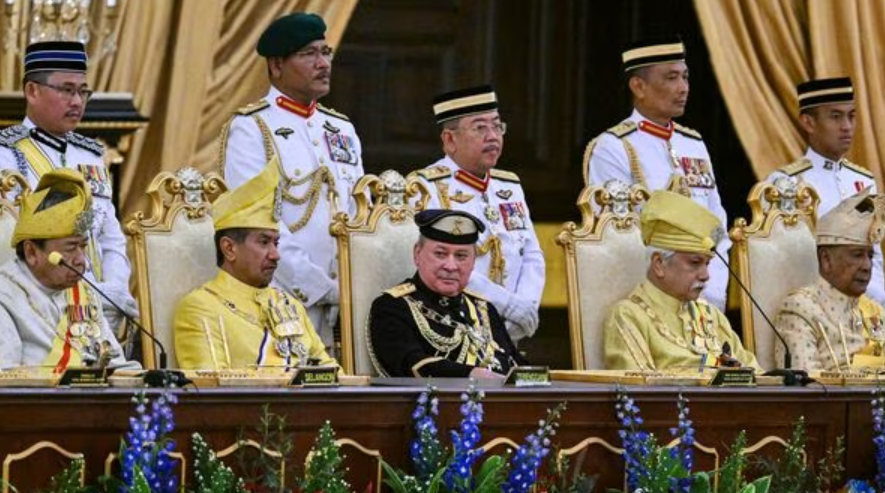Asian tech companies don’t wait for sanctions to be lifted after US elections, but hope for the best
It remains unclear how the outcome of the US presidential election could change the country’s trade tensions with China. But semiconductor companies in Asia generally believe that the US government is unlikely to change its policies to counter China’s quest for self-sufficiency in the semiconductor sector.

Some believe that curbing China’s growth was a common agenda for both Republicans and Democrats, with the only difference being the degree of containment or priorities. This means that trade conflicts between the US and China could ease slightly, and the Americans will slow the pace of disruption to 5G development in China by revising their trade sanctions against Huawei, SMIC, and many other Chinese tech companies.
Either way, the Taiwanese and Asian semiconductor industries as a whole are unlikely to be left out of the aftermath of the U.S.-China trade tensions and the ongoing technology war, no matter how events unfold. According to some observers, TSMC, the world’s leading contract manufacturer of chips, will only try to remain neutral, comply with regulatory requirements, and not take sides.
If the new US administration does decide to ease sanctions against Huawei, it will be a big plus for TSMC, as the company can return significant orders from the Chinese tech giant. If that happens, the semiconductor manufacturer will continue with its plan to build a manufacturing plant in the United States, but observers say investment may decrease and production capacity and processes can be simplified.
Major Asian companies such as Foxconn and Samsung will also continue their US manufacturing investment programs launched under President Donald Trump. By the way, a Samsung representative in an interview with Nikkei reporters anonymously noted that Joe Biden’s support for free trade and multifactorial should help the company grow since more than 80% of its revenues come from foreign markets. “ We have grown due to the globalization of trade. Many of our businesses rely on global value chains, ”he said.
Observers added that Taiwan’s United Microelectronics (UMC) may again lose some orders to China’s SMIC if the pressure on the latter decreases. Taiwanese chip makers MediaTek, Novatek Microelectronics, and Richwave, who have benefited greatly from China’s campaign to reduce purchases of US chips, could see a significant diminution in their advantages if some of the bans against Huawei and HiSilicon are lifted.
“I think Biden will still be tough with China, but he will think more strategically and he will be more strategic about what type of relationship we want with China,” Orit Frenkel is convinced. a former negotiator with the US Trade Representative’s office and currently executive director of the Washington-based advocacy group American Leadership Initiative. In his opinion, Trump’s tough approach towards China, including tax increases, has caused significant harm to American companies.
However, even under President Joe Biden, technological competition between the two superpowers will continue to grow: the United States cannot but see China’s growing technological capabilities and America’s dependence on supply chains as a national security issue. “Biden would also like to bring more supply chains back to the US. This is a way to help rebuild the American economy. But he won’t be as tough as Trump, ”said Darrell West, vice president and director of management research at the Brookings Institution, Washington thinks tank.
What will probably not change is the policy to move supply chains out of China, fueled by the Trump administration’s tax hikes and a crackdown on companies like Huawei. HP, Dell, and Google have approached their suppliers to help prepare the relocation of manufacturing outside of China, while many key electronics manufacturers have expanded their manufacturing facilities in many Southeast Asian countries, Taiwan and India. Apple’s plans to move additional manufacturing facilities to India and Vietnam will also continue to come true regardless of who sits in the Oval Office, whistleblowers say. This is simply a diversification of risks – no one wants to be left without production in the event of a worsening trade war.
On the domestic front, Biden has pledged to invest heavily in new technology as part of his Buy American economic program. The plan calls for $ 300 billion in new technologies – from electric vehicles and advanced materials to 5G and artificial intelligence – areas in which China is rapidly gaining traction. However, Mr. Biden and his future vice president Kamala Harris have also openly criticized the tech sector and called for more restrictive rules, especially for social giants like Facebook. Joe Biden also called for a special federal income tax for companies like Amazon. In general, government oversight of the technology sector will even intensify.







